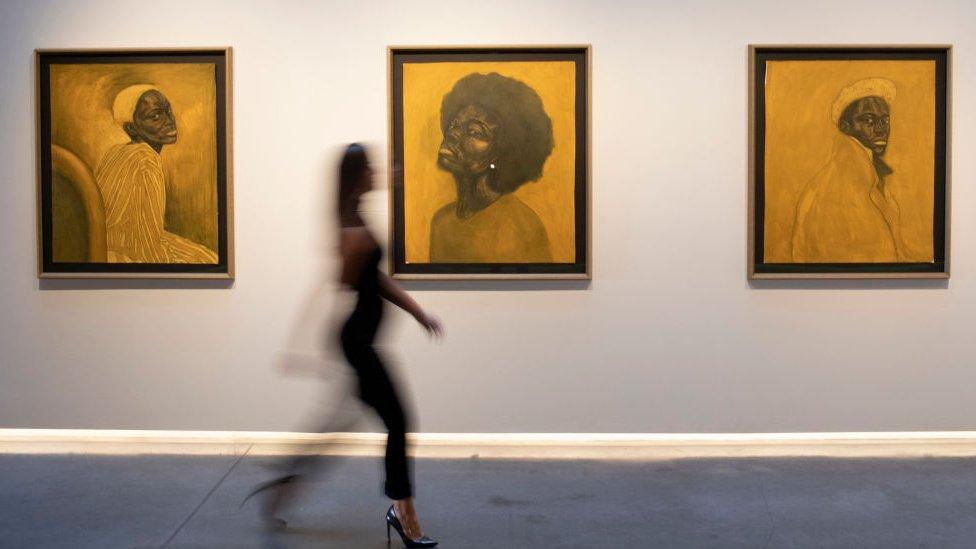'If we lose Black History Month we’ve got nothing'
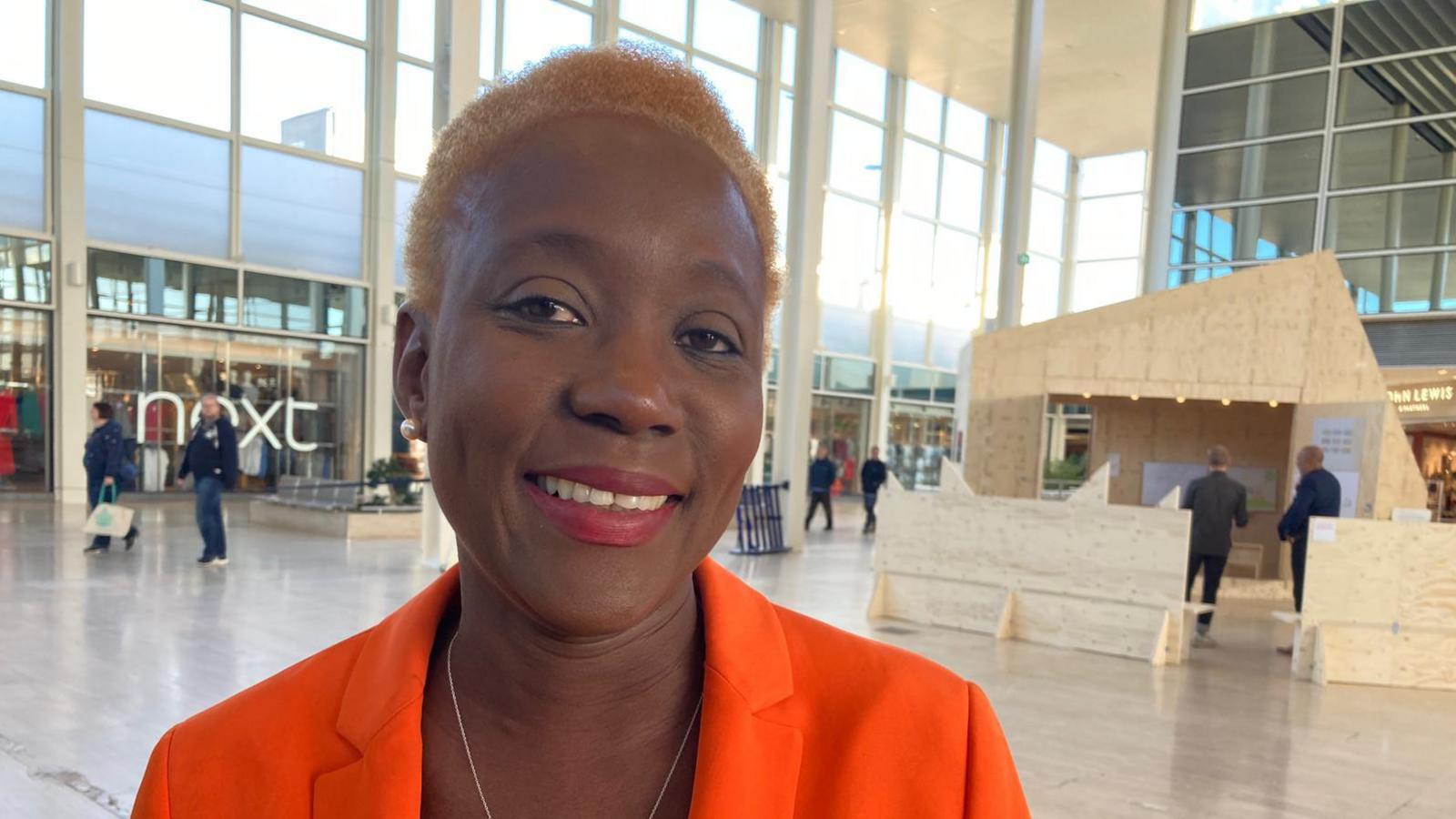
Nana Oguntola said she wanted the event in Milton Keynes to create new partnerships
- Published
The organiser of a Black History Month event in one of the UK's new cities said without it there would be "nothing".
Nana Oguntola invited businesses, artists and community groups to the two-day exhibition in the central shopping centre in Milton Keynes.
Black History Month (BHM) is intended to recognise the contribution and achievements of those with African or Caribbean heritage.
Ms Oguntola, a filmmaker from the city, said people were able to use the month "as a platform".
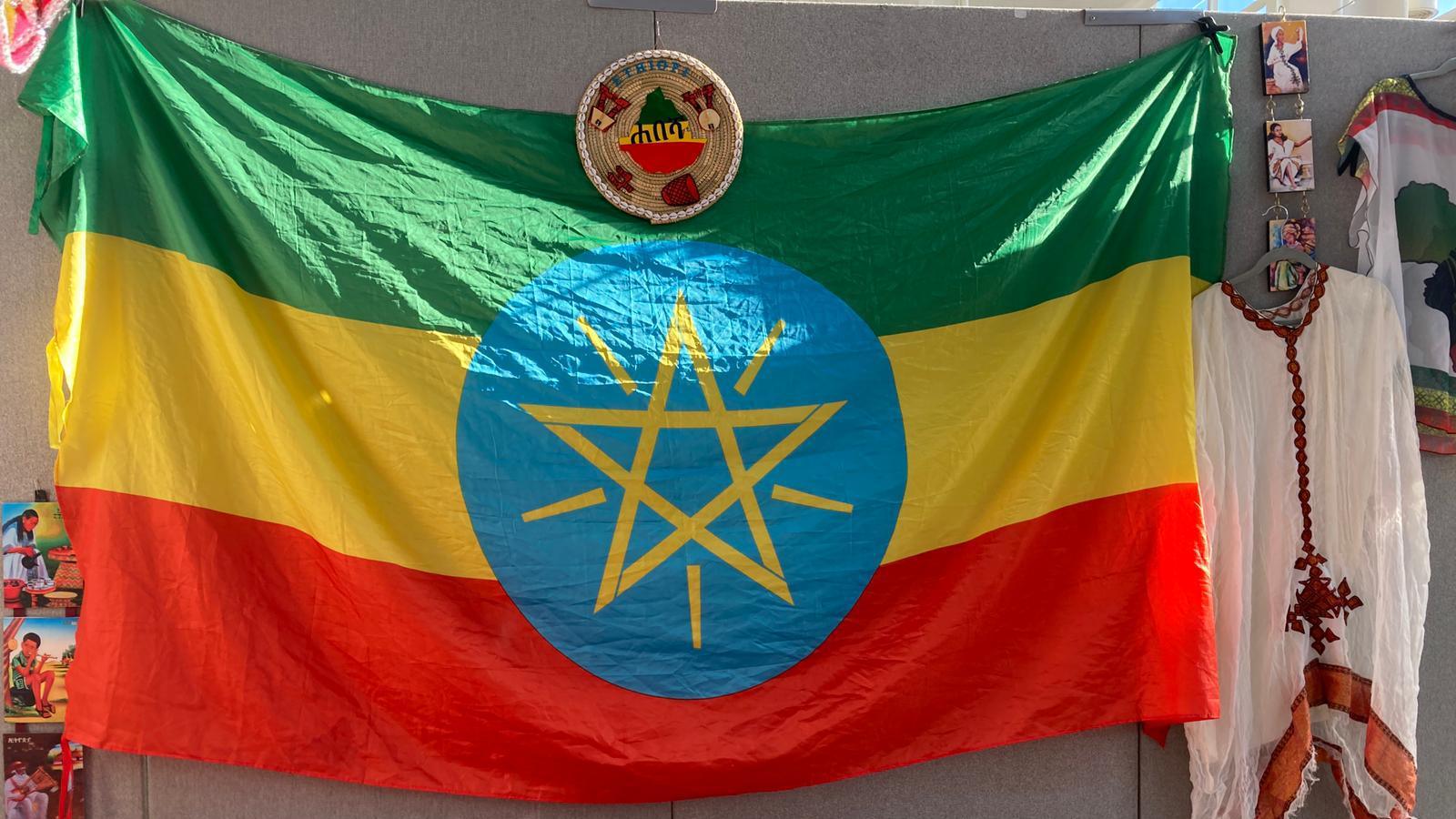
A display of Ethiopian artwork and culture was part of the exhibition
BHM was officially recognised by the US government in 1976, and first celebrated in the UK in 1987.
Places like schools, museums, and community venues host events to mark the month.
Ms Oguntola, who moved to the Buckinghamshire new town in 2007 from The Gambia, said: "I know people say we’re black all year round and we should have black history all year round, which I absolutely agree with.
"However we're not there yet, so on the way there we’ve been given a platform that is Black History Month.
"If we lose Black History Month we’ve got nothing."
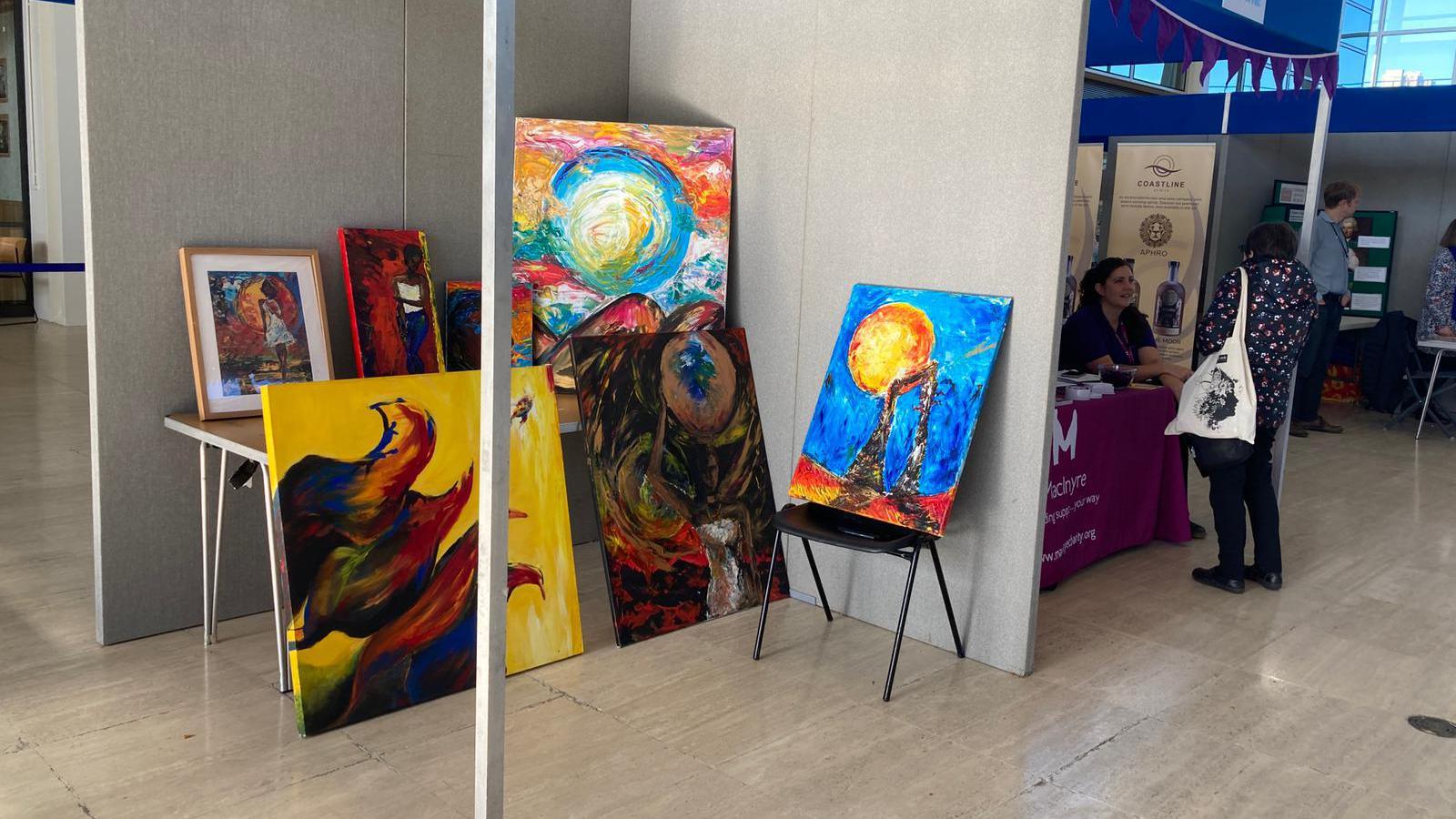
Artists, community groups and businesses were at the event in Mitlon Keynes
The exhibition the Centre:MK's Middleton, external ends on Tuesday and features black businesses, groups and organisations showcasing books, jewellery, art and photography.
"We’re in the centre of Milton Keynes, you can’t get bigger than that," Ms Oguntola said.
Robin Bradburn, deputy leader of Milton Keynes Council, said the event was "something that really does fit in with Milton Keynes, its diversity, and it's growing and becoming a very broad ethnic mix of people".
"The city is more than just buildings and roads, it’s the people," the Liberal Democrat councillor said.
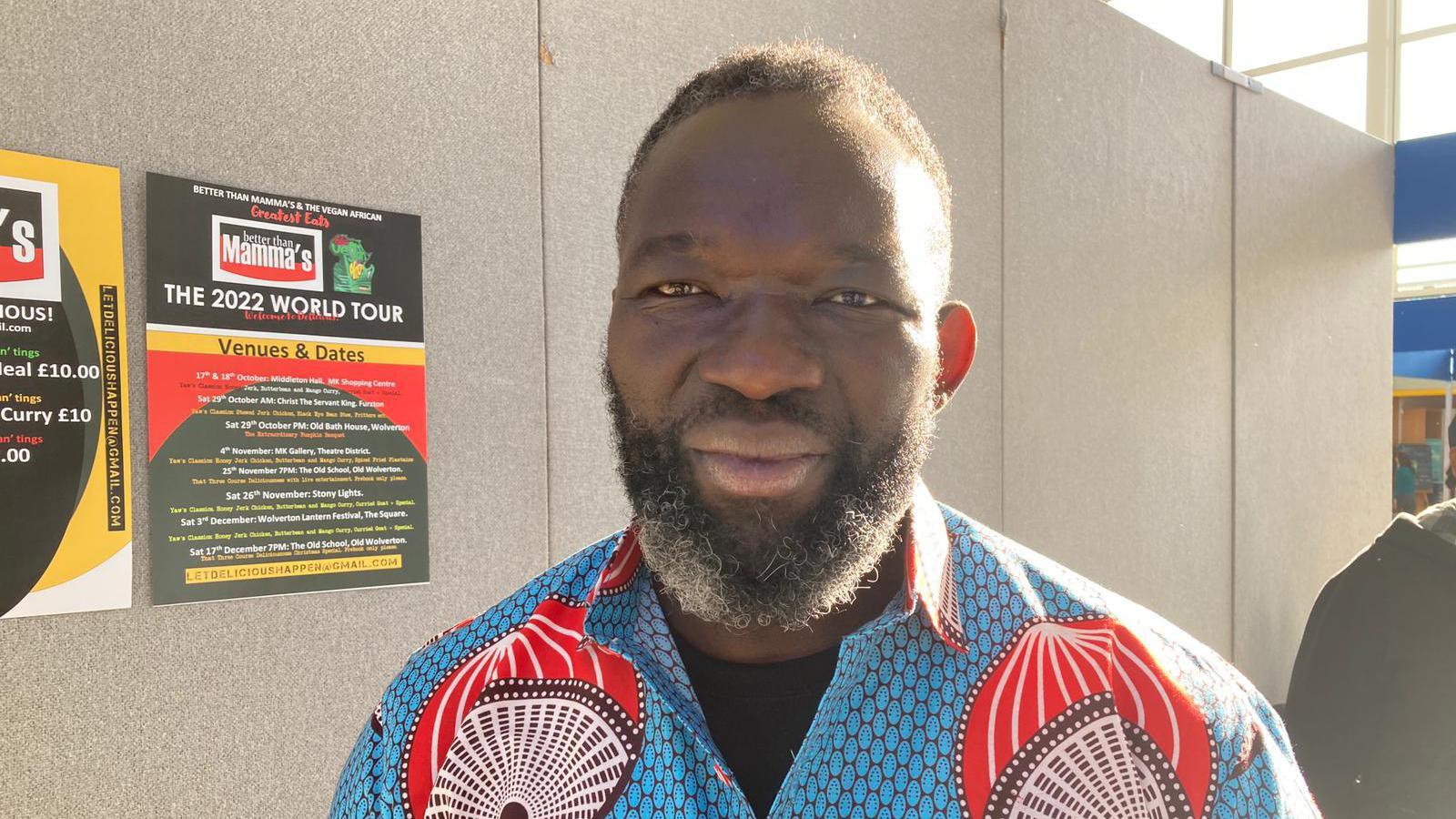
Yaw Asiamah said Black History Month was a chance to celebrate the culture of those with African or Caribbean heritage
Artist Yaw Asiamah moved to Milton Keynes in 1982 and showcased his work at the exhibition.
"I’m an artist and I saw the potential of created new things in a space that was longing for things to happen," he said.
"It's a space where I could explore and be happy and allow things to happen."
The artist said he previously challenged a local theatre to put on more plays by black writers and wrote three plays himself.
"We have to realise what we have to offer is a valid as any other [culture]," he said.
Find BBC News: East of England on Facebook, external, Instagram, external and Twitter, external. If you have a story idea for us, get in touch via eastofenglandnews@bbc.co.uk, external
- Published17 October 2022
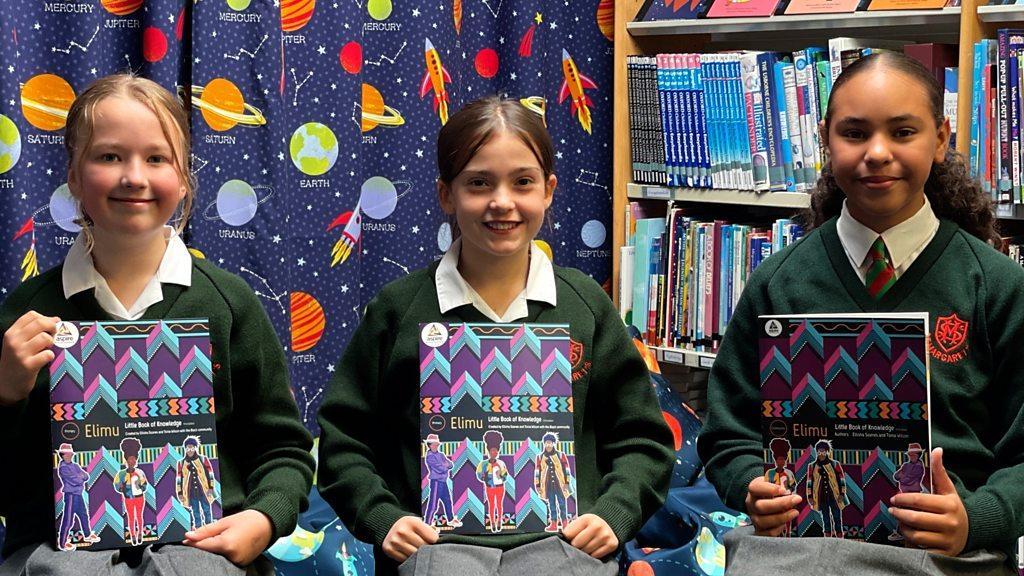
- Published3 October 2023
